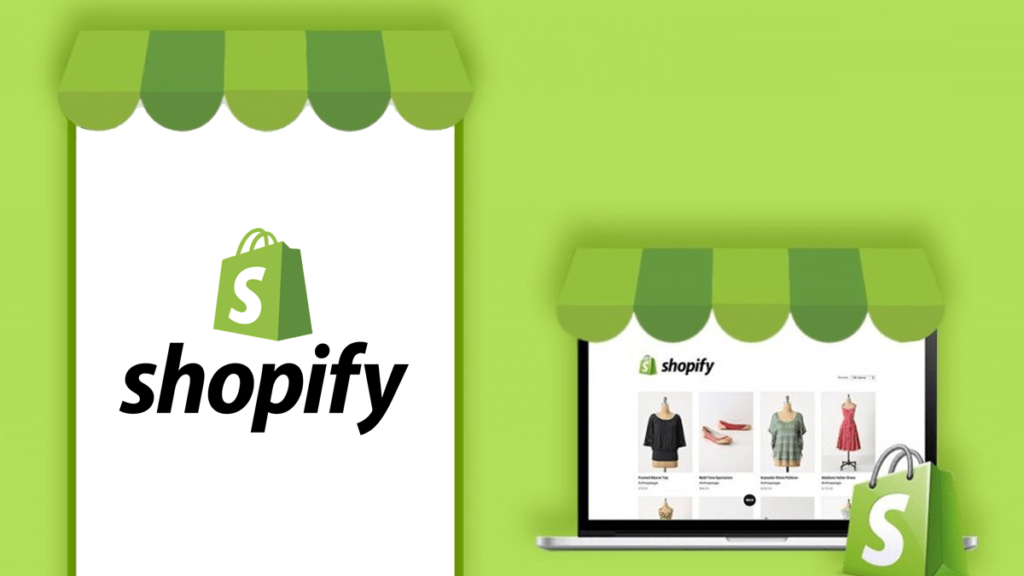
Comprehensive Guide on Shopify eCommerce Development
In 2020, Shopify merchants made more than 307 billion US Dollars in revenues worldwide. The total amount would make Shopify the 7th largest company in the world, surpassing many business giants.
(Source: Deloitte’s Impact Report on Shopify)
What would you look for in an eCommerce platform if you were a merchant looking to build an eCommerce app? The platform’s offerings, ease-of use, product development costs, support, and support would all be important.
The question now is: Does Shopify live up to all of these expectations?
Before we get to the details about Shopify’s capabilities, let’s start at the beginning. This will allow us to provide all information possible about this eCommerce platform.
This blog post aims to give you an overview of Shopify, its capabilities, and whether it is right for your project.
So, let us begin.
What is Shopify?
Shopify is a platform that enables you to build a website using Ruby on Rails. Shopify offers a wide range of services, including the ability to create a website and a storefront that is fully functional.
It is a set of tools that allows you to create eCommerce websites. However, programming skills will allow you to work outside the box using the platform’s infrastructure.
Although it’s not required to be able to code, it does have its perks.
Who can use Shopify?
Are you a business owner with an idea for an eCommerce store? Shopify is the right choice for you if so.
Are you looking to build a third-party app you can resell to multiple users on a platform and make a profit? Shopify is the right choice for you.
You can benefit from the multilateral capabilities of Shopify if you have the knowledge to contribute to Shopify websites or make custom changes.
Shopify offers a wide range of customization options, from preloaded templates and themes to large-scale customizations. This makes it a great tool for developers, merchants, business professionals, and anyone else who is interested in using it to achieve significant results.
What can you do with Shopify for eCommerce Development?
Shopify products have a competitive edge that allows them to design and develop better products.
Shopify offers a comprehensive package of eCommerce development services. Shopify is more than just another CMS. This is why it is one of the most widely used eCommerce platforms on the international market.
How can Shopify help me create eCommerce products?
Apps for Merchants
Shopify app development is easy with the help of extensible APIs, and simple-to-implement tools. These apps are created to enhance the Shopify eCommerce platform’s capabilities.
Shopify ecosystem allows developers to create custom, public and private apps for different needs of merchants or individuals.
Shopify themes can be customized or developed
Shopify lets developers create interactive themes with Liquid. This template language is based on Ruby HTML CSS JavaScript and JSON. Shopify CLI (Command Line Interface), which automates many tasks, such as previewing, testing and sharing themes, is a great way to speed up the customization and development process.
Create custom storefronts
Shopify’s Storefront API allows developers to create custom websites and embed UI elements. Storefront API can be accessed in GraphQL. This is a query language that allows for the manipulation of APIs.
Storefront API provides the facility to get direct access to different store resources that would allow a Shopify eCommerce development company to meet all custom demands of the eCommerce product.
Shopify: Why should you choose it for eCommerce Development?
With a large number of Shopify development services, the platform complements the complete requirements of an eCommerce product development project. It offers many reasons to be your preferred platform for creating eCommerce products, from technology to business.
Let’s take a look.
Multi-Channel
Customers are constantly looking for new ways to buy goods, which in turn creates new sales channels. Shopify launched multichannel Shopify to meet the growing demand for an eCommerce platform that can handle multiple sales channels.
Shopify Multi-channel features currently includes three major sales channels.
Online Store
This includes Shopify-hosted custom sites or storefronts.
Point of Sale
Multichannel integration is available for Shopify POS software hosted locally.
Buy a Button
Shopify’s Buy Button allows you to integrate important Shopify components, e.g. Shopify allows you to integrate product listings and shopping carts into both your Android and iOS apps and websites.
Simple to Implement
It is easier to use Shopify products in real-time environments because of the simplified documentation and code reuse. Shopify is cross-channel and multi-device compatible, so developers can easily develop and implement Shopify solutions for merchant products.
Reports & Analytics
Shopify gives admins the ability to see the performance, activities, different reports, and product creations. You can share and track different insights about the eCommerce products interactively.
Administrators have complete access to all aspects of the eCommerce product’s processes, including overview dashboard, financial reports and product analytics.
High Scalability
Shopify’s incubation tools and products developed with them showcase high-standard scaling, which allows them to work under extreme user loads. To enhance the product’s capabilities, you can easily upgrade and adopt new features. Shopify’s eCommerce development is more efficient because of its rich scalability.
Security Features
Shopify offers many security features to its users, including storefront protection and individual account security. Shopify’s eCommerce platform security strength is evident in its two-step authentication system, anti-phishing features and the use of PCI (Payment Card Industry Data Security Standards), which prevents fraudsters from stealing financial transactions.
WordPress Compatibility
WordPress developers have access to Shopify-powered themes for creating dynamic web pages.
Shopify and WordPress are both eCommerce platforms that have high compatibility. Shopify’s Buy Button For WordPress allows you to convert your WordPress website into an eCommerce storefront. This button gives you direct access to unlimited products and integrates orders with shipping. Shopify plugins can be used to quickly drop products on your WordPress storefront.
SEO & Marketing Tools
After your product is developed, you will need to make sure it gets enough exposure through effective marketing strategies and high rankings in search engine results. It allows you to modify robots.txt.liquid files, which allow the search engine to crawl pages on your site. This is a great way to win the marketing battle. To implement technical modifications, you might need to hire an eCommerce website design company.
Shopify offers a variety of marketing options, including email marketing, chat, integration with Google accounts, Facebook ads, and business messaging.
Steps to Create eCommerce Apps with Shopify
Validate your Idea
To kickstart your eCommerce app development journey, you need to first consider the goals, available resources, as well as possible outcomes. It’s about understanding the purpose and motivation behind creating it.
Prototype
Next, create an interactive layout that shows how your Shopify storefront or custom website will look. This will allow you to better visualize the user’s perspective. The Shopify development company you would work with can help you carve a product prototype that conforms to available resources of the platform and your project requirements.
Register for Shopify
Shopify accounts are required to start your product development journey. You can choose from blocks and themes to create your eCommerce store. To enhance its capabilities, customize the prebuilt elements and add additional elements to your eCommerce store, Shopify will need someone with technical expertise and programming skills.
Shopify Domain Setup
Shopify, or any other external hosting and domain service provider can help you purchase a domain to host your website. Name your business and reserve a server space is an essential part of the process.
Shopify allows you to easily add, transfer, and connect to a new domain.
Design
All pages that will be listed in your eCommerce store can have their interface designed by you. Shopify themes can be added to the theme store and customized. Shopify Buy Button allows you to quickly and easily add products.
You have many options to improve the look of your website’s pages. Product design is simple and allows you to create innovative eCommerce solutions.
Connect a Payment Process System
Shopify Payment can be used to process all sales payments without the need for external APIs or extensions. You can allow your customers to pay using a variety of payment methods, such as. debit card, credit card; G Pay, ShopPay, PayPal.
Get Business Tools
Shopify allows you to integrate business management tools or create custom codes that allow you to add new elements. You cannot change or create new backend codes on the platform because you’re working on Shopify’s server, which is different than what you can do with files on C-Panel.
Test
It is not enough to have the product. To be a revenue-generating asset, it must meet business objectives. The only way to test your product on functionality, speed, usability, and cross-platform appearance is through testing. A beta version can be launched to test its capabilities and gauge customer reaction before committing to a major investment.
Launch and Market
It is just as important as it is exciting to launch a product. Most eCommerce companies have a platform in place for their product prior to its launch. It provides them more time to work on branding, marketing, and other things that would help the product reach a large audience. You will have early opportunities to evaluate the success of your product if you have a good user community.
What is the cost to build an eCommerce app using shopify?
The Shopify plan that you choose is a significant factor in estimating eCommerce product development costs.
Shopify plans can be divided into three types.
Basic e-commerce
This plan is for small-scale stores where maximum staff can access the admin panel or Shopify POS. This plan costs $29 per month.
Advance e-commerce
Shopify Plan is for medium-sized businesses that want to expand their business and manage in-store and online sales with Shopify resources. This plan is $79 per month.
Advanced Shopify
Shopify is a plan that’s specifically designed for companies who want to monitor and analyze their business using advanced reporting tools. This plan is available at $299 per monthly. This plan allows you to add up to 15 employees accounts, giving them access to the admin panel as well as the POS.
Each plan allows you to build custom websites and blogs, add unlimited products, multichannel support, and provide 24/7 support.
It may be necessary to spend more for;
- Prototyping
- Design
- Development
- Marketing
- Testing and Maintenance
Shopify’s overall cost may fluctuate based on geographic factors and project complexity. It is therefore not possible to give a consistent price without knowing what type of product you want to create using the eCommerce platform.

